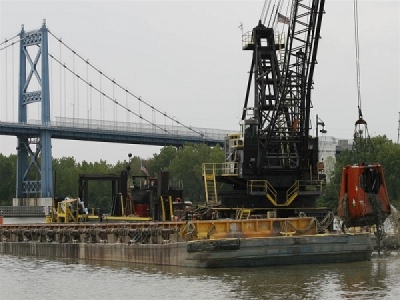
Posted on January 24, 2019
Ohio’s latest grant of $1.9 million to boost the on-shore disposal of material dredged from the Port of Toledo shipping channel is a positive move from the state.
A lot more will have to follow.
Toledo cannot afford to lose its port commerce, which is what will happen if the shipping channel can’t be dredged.
Last year, the Toledo-Lucas County Port Authority received about $1.2 million from the Clean Lake Erie Fund. That money is now being used to expand capacity in the Confined Disposal Facility, a.k.a. Facility 3, a manmade extension of land in Maumee Bay.
The additional $1.9 million will go to add storage capacity. The port authority hopes to make space for between 8 million and 10 million cubic yards of dredge material. That’s enough capacity to store all the muck dredged from the Maumee River and Toledo Harbor ship channel in the next 10 to 12 years.
At the same time, the port authority is developing plans that ultimately create much greater capacity by moving dredged material to farm fields to raise the level of the fields and fertilize crops.
The port authority has constructed a “Dredge Center of Innovation” along the Maumee River to take dredged material, dry it out, and show that it can be used to grow crops. Decades ago, the site was a public amusement park along the Maumee River off Summit Street.
This year, the port and its contractors hope to continue planting and begin analyzing crop yields, and doing other analysis, to ensure that putting dredged material back on farm fields is feasible.
Ohio has set an ambitious goal of ending the open-lake dumping of dredged material by 2020.
Toledo needs about 1 million cubic yards dredged annually to allow loaded ships to enter the port and travel upstream. Failing to find somewhere to dispose of that material would strangle Toledo’s status as a major port on the Great Lakes.
Dredging of the Maumee Bay and Maumee River is important to economic prosperity in the Toledo, just like resurfacing pavement on the Ohio Turnpike and Interstate 75.
It’s also important to whole state of Ohio, which is why assistance in ending open-lake dumping must continue aggressively.
Source: The Blade





